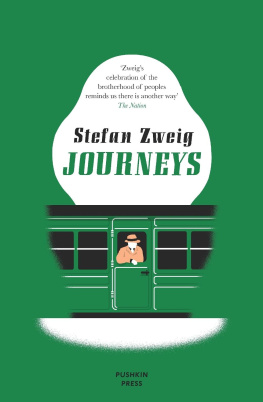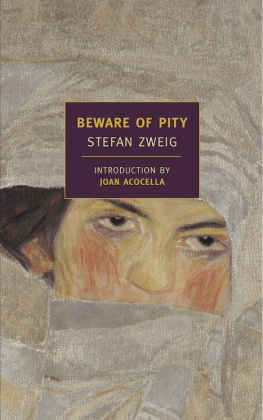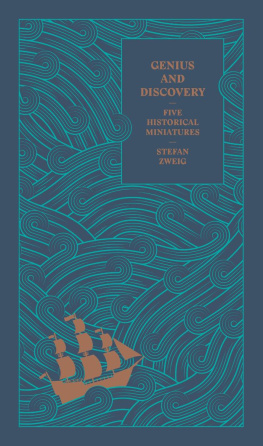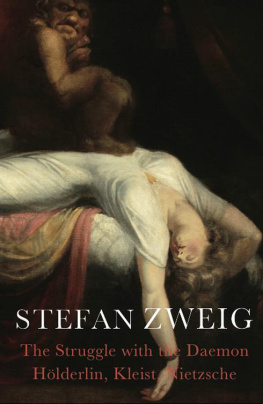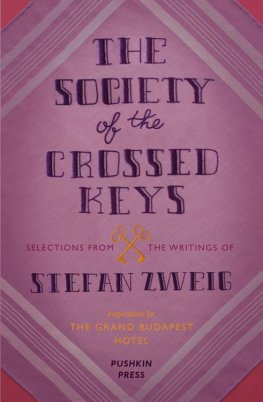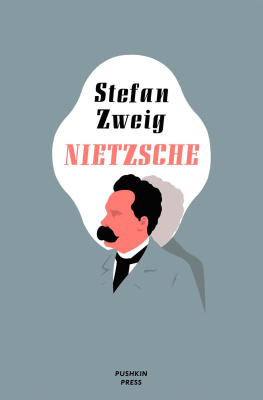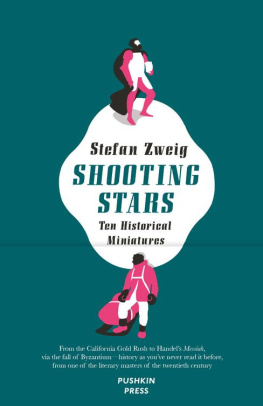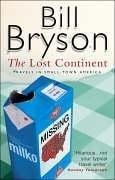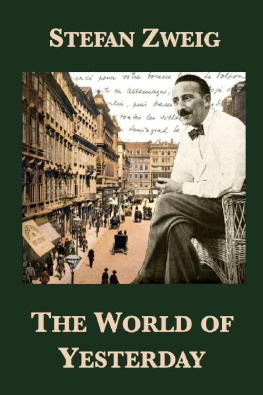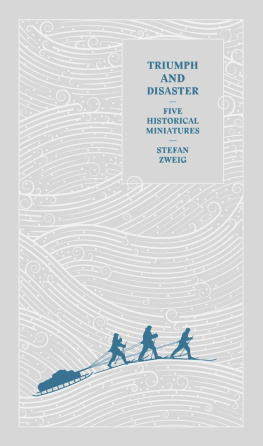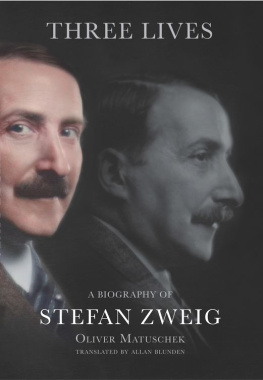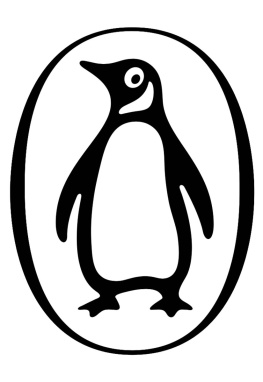A day of travel just like so many others over these last years. Is it because the world shakes on its foundations that one is so used to living in perpetual movement? Is it the premonition that a time is approaching when countries will erect barriers between them, so you yearn to breathe quickly, while you still can, a little of the worlds air? Whatever it might be, to travel is for me no longer something foreign, but almost natural. One breaks free with more force from ones ties and habits, of ones home and possessions both become insecure, they no longer miss you. Two suitcases, one containing my clothes, the material necessities, the other my manuscripts, the reserve for work and spirit, and so one is everywhere at home. And if the meaning of life consists in relentlessly discovering in the temporal and intellectual new forms of freedom, it is better perhaps to live with the least possible constraints, the art of leaving behind oneself, without sentimentality, a good portion of ones past.
Journal entry, 27th September 1935,
journey from Paris to London
To merely ascribe to the celebrated Austrian writer Stefan Zweig the title inveterate traveller as one of those who may find literary inspiration, temporary existential relief and inner fulfilment of a kind in the act and the art of travel to lump him in with other prolific writer-travellers, would be to fail properly to understand the absolutely primary importance of travel or the journey to his particular existence. For Zweig, travel, and European travel especially, was unquestionably the fulcrum of his entire adult life. When Zweig talks of travel he means travel by train, taking advantage of a complex rail network that found its golden age in the first half of the twentieth century, allowing the refined, erudite traveller to indulge in the comforting illusion of domestic privacy in the small furnished compartment, woodlined carriages studded with pictures, the handsome dining car, the attentive steward giving the impression one was somehow still at home but also on the move.
In the journal entry above, Zweig himself articulates the extent to which, by 1935, travel had become not a departure from home, but a home in itself. By this time, Zweig was no longer travelling with a light heart for cultural enrichment alone, to escape a sterile patch in his domestic life or to enhance literary relationships, to perform readings or attend lectures, to write a commission on a certain place for a leading German newspaper, to tease out of a fellow writer another manuscript or letter for his voluminous collection, or any other reason that made up the objectives for the countless journeys that span his working lifetime. In 1934, Zweig a Jew and committed pacifist, whose celebrated novellas, novels and popular biographies were to burn on pyres in university courtyards across Germany had abruptly terminated a period of fifteen years living in Salzburg and was if not yet running at full tilt, then jogging purposefully from snowballing Nazi tyranny. Seeking sanctuary in England, Zweig settled first in London then later in Bath, a town enclosed by a rural landscape that reminded the exile of his beloved Salzburg. Then, as Britain was in turn drawn into the war, came the affront of the Austrian-born author being labelled an enemy alien: he a Jew and victim of the Nazi state! Somewhat unhelpfully indecisive in his personal life, yet prone to dramatic decisiveness when events constituted a direct attack on his person, Zweig embarked for the USA along with his new wife, formerly his secretary, Lotte Altmann. Soon afterwards he moved on to Brazil, a country that had previously seduced him, where he was to remain until the combination of an insidious depression about the internecine events in Europe and the unexpected loneliness of his exiles vigil culminated in his suicide, alongside his wife, in their small house in Petropolis in February 1942. In the above journal entry, made en route from Paris to London, we have an insight into Zweigs thoughts as he sensed a perhaps permanent life on the road courtesy of Hitler, an imminent jettisoning of an old life, now outlawed, for a new unknown one, in which a man with two suitcases and a passport would attempt to breathe what was left of the worlds air before the hatch of war came down again. These first feelers of anxiety signal the lighting of the fuse that burned on ever more powerfully to reach, seven years later, the explosive ending none had foreseen.
Zweigs first precocious literary achievements when barely out of his teens were confined to the self-regarding circles of turn-of-the-century literary Vienna. Destined by way of birth and social position to prosper within a privileged artistic milieu where, at least for him, success came too easily, the youthful Zweig sensed that if he was to understand properly what it meant to be human he would have to extricate himself from that rarefied nepotistic circus and get his fingernails dirty in the soil of a wider Europe and beyond. First stop was Berlin, where he attempted rather unconvincingly to live for a time the life of a bohemian. This otherwise undistinguished period of slumming it in the more exotic and edgy dens of artistic Berlin was however crucial in terms of contacts, namely his meeting with the influential political figure Walter Rathenau, who impressed on Zweig in no uncertain terms the need for him radically to expand his horizons by travel. Next stop was Belgium, symbolically the crossroads of Europe, where Zweig wrote a postcard in shaky French from Bruges requesting a meeting in Brussels with the famous poet Emile Verhaeren. Thus began a deep friendship of mutual respect that fostered important literary accomplishments on both sides, interrupted only by the outbreak of war in 1914 and Verhaerens tragic death two years later, when he was crushed by a train in Rouen station. Verhaerens presence in both poetic and personal terms overwhelmed the cosseted Zweig. The fervent Whitmanesque visions of Verhaerens poetry and his ever passionate, ever curious, always fair and humane nature, the sheer human impact of this resolutely European-minded man was no less than a revelation to Zweig, heralding a new way of thinking and living that shaped the remainder of his life. Ever faithful to Verhaeren, whom he saw, before the FirstWorldWar tore into such lofty ideals, as one of the key European thinkers, those who together could usher in a vanguard of like-minded spirits to secure a united Europe, Zweig not only wrote an important biography of the Belgian poet, translated into several languages (including English), but secured his reputation in Germany by translating his poetry. Hence we find in the body of Zweigs work a slightly disproportionate number of essays relating to Belgian locations. At Verhaerens urging, which no doubt also influenced a young Rilke to make the same journey shortly after, Zweig sought out the Flemish towns of Bruges, Ghent and Antwerp, while during this same period he also travelled south to Provence, to discover Arles, Avignon, Tarascon, St Rmy and Les Baux. Here Zweig encountered the Provenal landscape of a century ago, still enjoying a late flowering of its unique customs, following the renewed exposure and safeguarding of its traditions by its indefatigable native son, the poet Frdric Mistral.
Thus we have a crop of essays from the period 1902 to 1906, starting with The Season in Ostend, in which we are given a glimpse of the almost unimaginable luxuries and largely uppercrust decadence of northern Europes leading coastal resort, as the town transformed into a glittering playground for the smart sets summer season and reverted to a lowly fishing port during the dead period of autumn and winter. It is pertinent to read this account and observe the rather drably materialist though in another sense eerily nostalgic Ostend of today, utterly unrecognisable from the grandiose portrait Zweig painted a century before. Ostend never recovered its former grandeur after being levelled by bombs during the Second World War, and ever since has been condemned to pick resignedly at its own architectural scab, the towns authorities convulsively rebuilding, levelling what remains of its more meaningful past, gentrifying its old venerable art museum into a sterile complex of fashion boutiques, for example, and leaving behind the famously immense curve of the old sea front a monstrous showpiece for bleak functionality at the expense of aesthetic enrichment.

